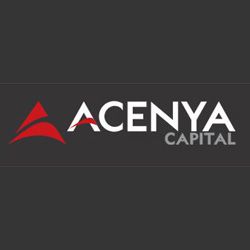Have you ever thought about structuring your Dutch investments via a VBI?

Do you have investments in the Netherlands and do you know for sure if these are structured optimally? There are more options than you might aware of. Once such option is the Dutch EII or Exempt Investment Institution (VBI or Vrijgestelde Beleggingsinstelling).
A VBI is an investment vehicle. The VBI must be set up in the form of collective investment fund (FGR) or a public limited company (NV). It may only invest in financial instruments and, because it is classified as an investment vehicle, it is subject to supervision. The VBI was introduced in the year 2007 to have more Dutch assets managed and structured via the Netherlands and to be able to compete with jurisdictions such as Luxembourg and Belgium.
How is a Dutch VBI taxed?
The largest advantage of a VBI is the exemption from corporate income tax and dividend withholding tax, comparable with the Luxembourg SICAV. A VBI is not entitled to a refund of dividend withholding tax withheld on dividends received, the Dutch participation exemption does not apply and no tax treaties can be invoked. These three limitations shall be taken into account when defining a VBI’s investments.
A number of other advantages are that a VBI does not have to file any corporate income tax returns and can have profits accumulate, because it does not have to distribute the profits to its shareholders. This in contrast to the FBI, another Dutch investment vehicle.
The shareholder of the VBI owes income tax (partially deferred). How much exactly depends on the place of tax residence and level of interest in the VBI. For non-Dutch tax residents, the taxation will be depending from the local tax regime and if there are any treaties applicable. For Dutch persons the taxation is as follows:
- If a natural person has an interest of 5 per cent or more in the VBI, there is a substantial interest. The interest then falls in box 2 and a flat-rate return of 4 percent on the tax base will apply. The tax base is the fair value of the participation. This fixed return is taxed at the applicable box 2 rate. The effective tax burden thus comes to 1% of the asset amount per year.
The purchase price of the shares in the VBI is increased with the amount on which tax is levied thus preventing from being levied tax twice. When the shares in the VBI are sold, this increase reduces the capital gain and there will be no second taxation of the part of the value that has been taxed earlier.
- If the interest in the VBI is less than 5 percent, this investment will be taxed in box 3.
Is a VBI eligible for tax treaty protection?
In the year 2011 the Dutch Ministry of Finance has changed in its tax treaty policy its approach to BVI’s in the sense that from that year it will support a BVI if it will claim protection under Dutch tax treaties, except if the Netherlands specifically agreed with the other treaty partner that certain treaty benefits will not be available. The Dutch tax authorities will support a BVI in claiming tax treaty protection by issuing a residency certificate.
What are the conditions for a Dutch VBI?
One of the conditions for being able to form a VBI is that the VBI must have at least two shareholders. In the first instance it was assumed that a distribution of the share capital in the ratio of 99 percent to 1 percent need would not raise any issues. However, on 10 March 2008 (by decision no. CPP2008 / 291M), the State Secretary of Finance announced that such share ratio will not be accepted unless any exceptional circumstances apply. According to the State Secretary, the VBI is not intended for individual asset management, but for investment institutions that target a broad public or institutional investors. The reasoning was, therefore, that if there is an investment company with one dominant shareholder – whereby this party has sought one or more other shareholders to be able to qualify as a collective investment – then the material condition of collectivity is not met.
However, in May of the same year, 2008, unofficial positions were published stating that if the shareholder with the greatest interest does not hold more than 90% of the shares, the VBI can still be applied. Scholars assumes that if a second shareholder holds 10% (or more) of the shares, no objection will be made by the tax authorities. It should be noted, however, that the holding of these shares by a minor child or the spouse (if one is married in a community of property) will be attributed to the ‘main shareholder’. Lettering or certification of the shares is not permitted. The second shareholder is usually the wife (if married under marital conditions) or an adult child.
Does the VBI has any limitation to its investments?
Investing is subject to rules. For example, direct investment in real estate is not permitted. In many cases, investing in foreign shares is simply not attractive because the VBI will be levied high withholding tax rates. This because it has no access to tax treaties as mentioned earlier.
Also having a pension obligation on the balance sheet (for example when converting a holding BV) is not permitted.
How to opt in to the VBI regime?
You can request the VBI regime annually. If there are hidden reserves that have arisen before application of the VBI regime, these must be settled. According to the Ministry of Finance, the Netherlands has the right to demand compartmentalization.
How to establish a VBI?
A VBI can be created on the basis of formation of a Dutch company or FGR. In practise the establishment of a VBI is often taking place on the basis of an existing holding BV. Hereby it is important that the BV will be converted into an NV (which is allowed under Dutch law) and that the articles of association are adjusted so that these suit an investment company. The amendment must realise that the articles of association of the company do not contain any provisions that limit the free transfer of shares. According to the State Secretary, any limitations are not in line with the so-called ‘open end’ concept, since the VBI is intended for use by freely accessible investment institutions.
Also a provision must be made in the articles of association of the company or in a separate agreement whereby the shareholders are given the opportunity to periodically (at least once a year) to offer their shares for sale to the VBI.
At the establishment of a VBI, any reserves must be settled. However, the conversion from a BV to an NV can be done without any direct consequences for the reserves. In addition to the possible conversion of a BV into an NV, there may also be a split or split off. This applies in particular if the BV also holds claims or pension obligations. At a split-off, a new NV can be established or an existing one can be used. A splitting off must be executed by means of a notarial deed. A split can result into a BV and NV or a NV and NV.
Once the NV solely holds qualifying assets, a VBI decision can be requested. This must be done at the tax office that deals with all VBI requests. Here all requests are assessed of investment companies for which no MFA license is required on the basis of the Financial Supervision Act. The latter is the case when the VBI offers investment products with a value above € 50,000 (and therefore has no ordinary consumers as customers) or if the VBI offers its shares to less than 100 persons (who may not be professional investors).
Practical requirements for a Dutch VBI summarised
Here below you can find an overview of nine conditions that a VBI should continuously meet throughout the year.
- A VBI must have the required legal form.
The investment vehicle must be a:
- public limited company (NV);
- collective investment fund (FGR), or;
- a company created or entered into under the laws of the Netherlands Antilles, Aruba, a member state of the European Union or a state with which the Netherlands has concluded a tax treaty that prohibits discrimination based on nationality.
The private nature of a BV does not fit in with the intended structure of the VBI as an investment vehicle that focuses on a large audience.
Persons that want to obtain the status of VBI for their investment BV will have to convert that BV into an NV. That is possible without taxation. The conversion must take place by notarial deed. In addition, the articles of association of the company must be adjusted and the issued capital of the company must be increased to at least € 45,000. To this end, an accountant must provide a statement that the shareholders’ equity of the BV (to be converted into an NV) is at least € 45,000.
- A VBI must have Dutch tax substance
To guarantee that Dutch (tax) law will be applicable to the VBI, it is advised to create Dutch tax substance by having a Dutch office address, at least 50% of the directors residing in the Netherlands and the major decision prepared and executed in the Netherlands.
- A VBI must be an investment institution within the meaning of the Wft.
The Financial Supervision Act (Wft) defines the investment institution as ‘an institution that requests or acquires funds or other goods for collective investment in order to let the participants share in the proceeds’. As a result, the VBI may require a license from the AFM, the Netherlands Authority for the Financial Markets, to be able to offer investments in the Netherlands. An exceptions applies if;
- the VBI offers investment products with a value of more than € 50,000, or;
- if the VBI offers its shares to fewer than 100 persons (who are not professional investors).
- A VBI may have only one objective under the articles of association: investing.
The objective of investing must be anchored in the articles of association. Additional objectives such as participating in other companies, or managing and executing pension or standing rights obligations are not permitted.
- A VBI may only have investment activities.
Investment is the only permitted activity of the VBI. A definition of what should be understood by ‘investing’ is not provided for in any laws. When making investments, it is about striving for increases in value and returns, with an adequate assessment of the associated risks. An investor must refrain from entrepreneurial activities, speculating or gambling.
- A VBI may only invest in designated financial instruments.
The law lists the permitted financial instruments in which a VBI may invest;
- securities, shares and bonds;
- participation rights in investment institutions;
- instruments normally traded on the money market;
- a right to the long-term transfer of goods or an equivalent instrument aimed at settlement in money;
- an interest rate term contract;
- an interest rate swap, currency swap or stock swap;
- an option to acquire or dispose of a financial instrument;
- derivative contracts for the transfer of credit risks;
- options, futures, swaps, forward contracts and other derivative contracts relating to climate variables, emission permits, inflation rates or other economic statistics and to be settled in cash;
- financial contracts to settle differences.
An investment vehicle that wishes to obtain a VBI status cannot therefore hold active shareholdings, loans to any shareholder(s), a current account relationship with any shareholder(s), loans to third parties/private individuals, and real estate located in the Netherlands, including mortgage loans on such real estate. The company may also not have any pension rights obligations. The company must dispose of these assets – and transfer them to another company by means of a tax-neutral legal split – before the status of VBI can be applied for.
- A VBI must invest with risk diversification.
A VBI may not invest in one product or instrument. Risk spreading is an essential element of investing assets. The law does not state how many different products must be invested. An investment in a fund of funds, a fund that invests its assets in different companies, seems permissible.
- A VBI must have at least two shareholders/participants.
A VBI must focus on ‘collective investment’ and that requires that the company has at least two shareholders. With regard to this collective requirement, it is crucial that the participants in a VBI join forces, invest jointly and jointly share the costs, risks and investment returns.
A VBI is not intended for ‘material individual asset management’. As already explained above, Finance refuses the VBI status to investment companies in which one investor has the vast majority of the rights. A VBI in the family sphere is allowed if one person holds no more than 90% of the shares in the investment company and one or more other shareholders the remaining 10%. Those other shareholders may not be the spouse married in community property or minor children. Adult children are permitted, as well as brothers and sisters of the main investor.
- A VBI must meet the open-end requirement.
The open-end requirement implies that the company must be able – and keep resources available – to repurchase or repay the shares of its shareholders at their request. This requirement is nuanced in parliamentary proceedings: the VBI does not have to be able to buy back or redeem shares at any time of the year, it is sufficient for the company to pay its shareholders at certain moments (at least ones) during a year. This moment must be announced in advance by means of an investment policy. This (semi) open-end requirement must be recorded in the company’s articles of association.















